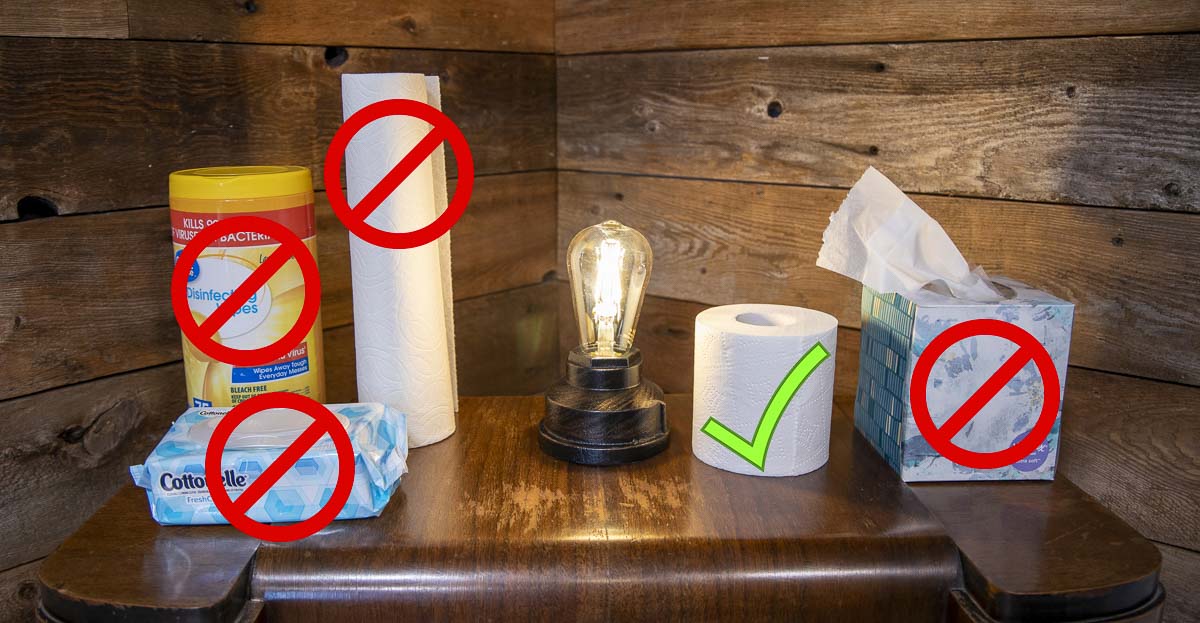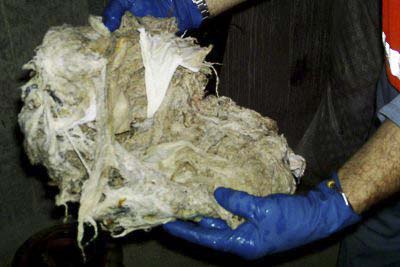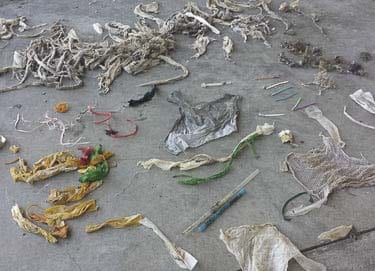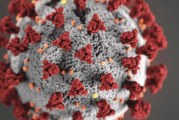The city is urging residents to only flush toilet paper, everything else needs to be safely disposed of in the trash
CLARK COUNTY — If you are one of the unfortunate souls who has been unable to find toilet paper in Clark County stores, you may be settling for some unsettling alternatives.

Whether it’s a baby wipe, facial tissue, paper towel, or even wipes that claim to be flushable, area sewage treatment experts have a request of you.
Please don’t flush it down the toilet.
“They just really don’t break down in our sewer system or in the wastewater treatment process,” says Frank Dick, a wastewater engineer with the city of Vancouver, “and they can cause problems throughout the network at the wastewater treatment plant.”
Those problems can extend from blockages in the line that connects your house to the sewage pipes along your street, to blocking pumps along the way, or even creating those infamous “fatbergs” — disgusting balls of fat, hair, human waste, and things that shouldn’t be flushed.

Toilet paper is specially designed to quickly break down in sewer and septic systems, because the fibers used in it don’t bind together. Other products, including flushable wipes, hold together much longer.
Even if they make their way through the sewer system without creating problems, they can often end up binding to screens and filters at the wastewater treatment plant. All of which need to be removed by human beings.
“I think people should be mindful of their sewer systems,” says Dick, “and the people that work every day out in the sewer systems and wastewater treatment plants, and encounter this material that they pretty much have to use manual methods to unclog pumps or clear off screens.”
By the way, if you end up with a blockage in the pipe connecting your home to the street, it is your responsibility to repair at your own expense.

So what should you do with those used baby wipes, tissues, paper towels, or whatever other item you’ve resorted to in the absence of actual toilet paper?
Put it in a trash bag, seal it up well, and dispose of it safely in your normal trash.
If you’re looking for more information on what you shouldn’t be putting down your drain, check out this page from the Clark Regional Wastewater District.
More coverage:
COVID-19 Information and links





